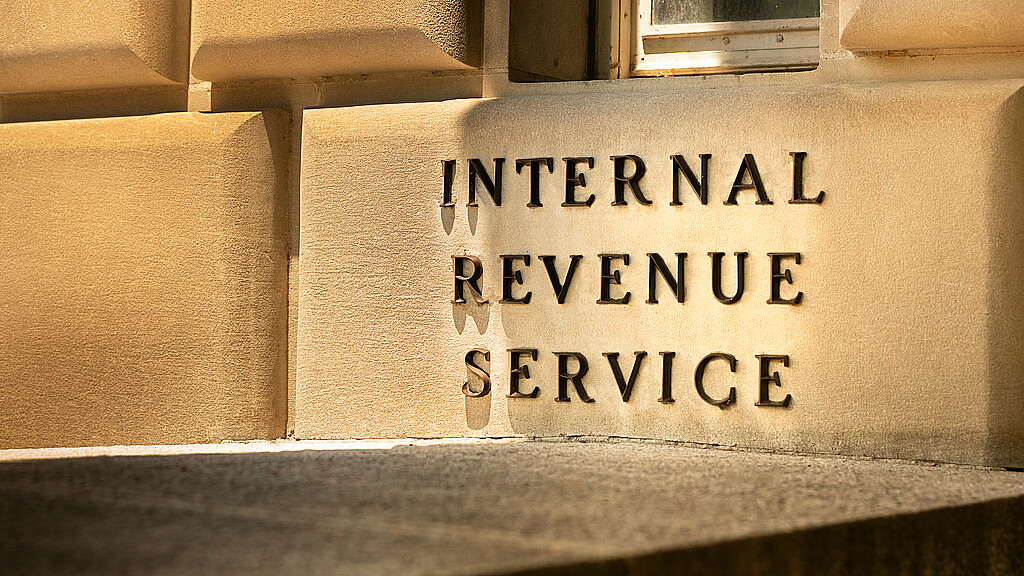Opinion & Reviews
Opinion: Why small business owners need to adopt a 'Tax First' mindset
We often think the tax code is there to hurt us, but it is actually a tool that can help us

December 11, 2023 1:15pm
Updated: December 11, 2023 1:15pm
The tax code can seem daunting, and navigating it is a scary undertaking for small business owners and entrepreneurs across the country.
As we know from firsthand experience, many small business owners pour their blood, sweat, and tears into their businesses, generating substantial revenue in the process, only to discover that they owe the IRS equally substantial tax bills, making true success and profitability seem like a pipe dream.
Meanwhile, the nation’s wealthiest corporations and companies often pay virtually nothing to the IRS in taxes whatsoever. Why? It’s not because the government gives them special treatment, or because they bribe IRS officials or anything nefarious like that. It’s because they (and their small armies of accountants and consultants) have mastered the tax code.
But the quirks of the tax code that have allowed companies like Amazon to pay virtually nothing in taxes to the IRS are available to everyone, which is why it is crucial that entrepreneurs and small business owners who wish to succeed adopt a “Tax First” mindset.
The individuals in America who are the most successful all have one thing in common. They understand taxes and how to use them to preserve wealth. This is because they realize that the IRS is not our enemy – and it can even be our friend.
We often think the tax code is there to hurt us, but it is actually a tool that can help us. Yes, the tax code is gigantic and complicated. But the part of the tax code that deals with who must pay how much and when is relatively simple, and indeed not even that long. Most of the tax code deals with ways we can keep our money.
Think about it. The tax code says that if a business invests in certain assets or industries, then the government will give that business significant tax breaks and benefits because it wants those assets and industries in our country. Right now, the popular industry is alternative energy. Take investing in solar power, for example, which can generate a 30% credit. Many states offer similar tax incentives on top of the federal incentives, as well.
Folks can get tax deductions for investing in themselves and their businesses. They can get tax credits for having employees and promoting technological innovation. They can also write off real estate investments — why stick your money in a mutual fund when you could invest in an apartment, write off the expense, and make more money from rent and the appreciation of the property value?
Indeed, the wonders of real estate, when it comes to lowering one’s tax bill, cannot be matched. Under the right conditions, certain small business owners may even be able to avoid a tax bill altogether by investing the money they would owe the IRS into real estate, offsetting their entire tax liability.
The IRS also allows a business that posts a loss each year to carry that loss back to the taxes it paid in the previous year and recoup it as a refund.
Clearly, the IRS should be seen as a partner, not an enemy. Understanding this is a crucial component of having a “Tax First” mindset.
Adopting this mindset may be more difficult for small business owners, especially those of color. Many of us have a fear-based relationship with the IRS, often because of our trauma with the financial systems in our countries of origin, but also because studies show that there is a history of inequities in the enforcement of tax laws.
However, inequities in tax enforcement are an endemic problem for our lawmakers to take on, and those kinds of changes can take many years or even generations to correct. In the meantime, there are tax codes today that work to our advantage. We must use them to build our small businesses and our own wealth. We must be part of the system and make that system work for us. Knowledge and action are the answer.
Another crucial component of the “Tax First” mindset is proactivity. We often tend to think of “tax season” as that period between New Year’s Day on Jan. 1 and Tax Day on April 15, when information is given to accountants and tax returns are filed. But the truth is that there are in fact two tax seasons — the season of compliance, Jan. 1 to April 15, and the season of planning – which should be the rest of the year.
Obviously, the countless tax credits and incentives the government offers are worthless to small business owners who don’t use them. So, it’s important to remember that many of the things that individuals and small business owners can do to lower their tax liability must be done prior to the end of the year. Once the clock strikes midnight on New Year’s Day, you can do nothing to lower the previous year’s tax burden.
That’s why finding the right CPA and/or tax consultant is crucial to ensuring small business owners preserve every penny they possibly can. Unfortunately, many CPAs are just as unaware of the available credits and incentives as their clients, which isn’t surprising.
Between the Tax Reform Act of 1986 under President Ronald Reagan and President Donald Trump’s Tax Cut and Jobs Act of 2017there were no changes made to the tax code. That means for over three decades CPA firms didn’t have to do much to maintain their expertise.
Now, however, things are different, and the tax code is as static as a carousel. Indeed, we’ve seen five major changes to the tax code since 2017, leading to a situation in which CPAs have difficulty planning because they are constantly having to react.
Small business owners can’t just rely blindly on their CPA – they should also try to educate themselves. They should do their homework, Google available tax credits and incentives, and forward the ones they believe applicable to their CPAs for further discussion.
Adopting a “Tax First” mindset may take some getting used to (and the odd research-induced headache), but it’s an investment that will more than pay for itself. Taking advantage of the tax code and saving hard-earned money isn’t something just for the mega-rich and large corporations. We can all do it. And if we adopt a “Tax First” mindset we call can.
Nely Galan is the former President of Entertainment for Telemundo, New York Times bestselling author of “SELF MADE: Becoming Empowered, Self Reliant,” and “Rich in Every Way,” and host of the MONEYMAKER and MI MUNDO RICO podcasts. Julio Gonzalez is the founder and CEO of Engineered Tax Services. The two have joined forces to share the tax tips and tricks that are usually the preserve of top Fortune 500 companies with small business owners across the country.










